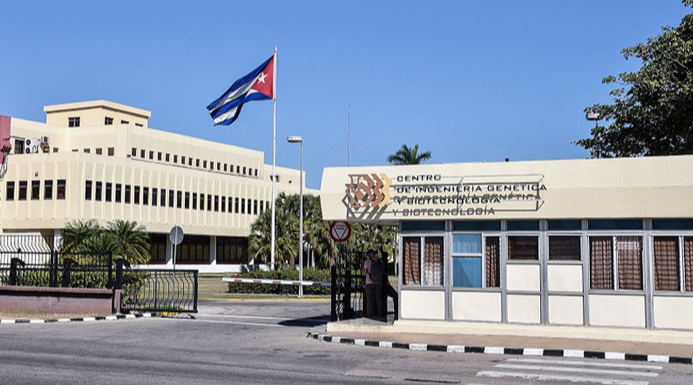
Cuba's Center for Genetic Engineering and Biotechnology
by María Josefina Arce
Cuban biotechnology, with its innovative and effective products, continues to expand its presence in other nations, benefiting the health of many citizens and is another example of the importance Cuba attaches to South-South cooperation.
Now Cuban biotechnological products, an international reference in this branch of science, will reach Brazilian soil, especially the municipality of Maricá, in the state of Rio de Janeiro.
An agreement signed in the last few days in Havana between the Mayor's Office of that territory and the Biocubafarma business group will allow the production of Cuban medicines and vaccines in the South American country.
This will be possible thanks to the formation of a joint venture, which will combine Cuban medical technology and Brazilian industrial capacity.
Among these products is HEBERPROT-P, the only one of its kind in the world and highly effective in treating diabetic foot ulcers and reducing the risk of amputation of the lower limbs.
Developed by the Center for Genetic Engineering and Biotechnology, this drug is used in almost thirty countries around the world.
In 2011, it was awarded the World Intellectual Property Organization's Gold Medal for providing an original therapeutic solution for diabetic foot ulcers.
The agreement between the municipality of Maricá and the Biocubafarma business group will also enable the production of a vaccine against leptospirosis, a bacterial disease transmitted by the urine of infected animals.
This immunogen, developed by the prestigious Finlay Vaccine Institute, will be of vital importance for the South American giant because, according to the Pan American Health Organization, although the disease is registered worldwide, it is endemic in countries with humid subtropical and tropical climates.
It also opens up the possibility of technology transfer and the development of joint research projects to provide an effective response to health problems.
Cuba has always been committed to international collaboration in the face of the challenges of today's world, especially in the field of health. And in that sense, the agreement signed with the Brazilian municipality of Maricá is a significant step in favor of South-South cooperation.

